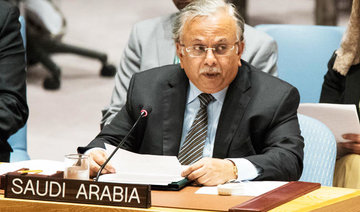JEDDAH: The year 2030, when the Kingdom’s Vision is due to be fully realized, will be an auspicious time for the 18 year old Saudis of today, as it is also the year in which they will turn 30.
Arab News talked to some of these ambitious teenagers, who are already playing their part in achieving the goals of Vision 2030 to create a successful and thriving Saudi society, to find out what they think about the changes and the future of the Kingdom.
Firas Al-Nasser, a law student at the University of Leeds and vice president of nonprofit organization Us the Youth feels the weight of responsibility that this coincidence of age brings, but is facing it with admirable optimism.
“This coincidence, while remarkable, places on me the responsibility to be the embodiment of (Crown Prince) Mohammad bin Salman's vision,” he said. “Of course, with all the platforms he has laid out for me and others alike, this responsibility translates seamlessly into ambition.”
He said that Vision 2030 is both a plan and an ideal, adding: “It builds an infrastructure for innovation and it also encourages the people, especially the youth, to innovate.
“Us the Youth is an organization that strives to motivate the youth to innovate, create and connect with one another. Hopefully, we are successful in conveying the same sentiment the crown prince does in his vision.”
Al-Nasser applauded the crown prince for providing the Kingdom with grand opportunities in all aspects.
“The beauty of Crown Prince Mohammad bin Salman's dynamic vision is that the future is taking place in the present,” he said. “Ambitions are coming to life every year, with new infrastructural plans and genuinely beneficial social changes.
“In order to understand what Saudi Arabia will be like in 2030, one only needs to see the change the crown prince has made in one year. In one year, women were given more financial opportunities and the legal ability to drive. In one year, the construction of an entire new city has begun, in which hundreds of billions of US dollars have been invested. In one year, we have significantly reduced our economic reliance on crude exports.
“Now imagine what the next 12 years might have in store. That sense of mystery and anticipation inspires the youth of Saudi Arabia, an achievement only possible under bold, decisive leadership.”
Saudi Vision 2030 has begun to empower women in a number of ways, according to Rafah Al-Awaji, a foundation student at the University of Jeddah.
“Saudi Vision 2030 has helped me choose my major and —almost the course of my life,” she said. “It has highlighted what I want in the future, where I want to be at age 30, and what I need to do from now until then to achieve the nation’s vision, to have a vibrant future and to make my country proud, with achievements inside the kingdom or by representing my country in international forums.”
King Saud University foundation student Yara Al-Zahrani also highlighted the empowerment of women promoted by Vision 2030 has promoted for women, in particular the new opportunities that are available.
“By giving the chance for us females to prove our capabilities, we now have our hands on what our mothers once couldn’t. It is a step towards gender equality,” she said.
Muneera Al-Beeshi, also a student at King Saud University, is excited to see what lies in store before she turns 30.
“I think it’s very cool because it will be the third decade of the twenty-first century and I will have witnessed so many historical changes in such a short period of time,” she said. “I mean, I am 18 now and I have already lived through so much change.”
Currently a foundation student, Al-Beeshi intends to focus on science and technology.
“I plan to have a master’s degree in engineering that I could use to design technology and machinery that will be useful for Saudi consumption and the growth of the Saudi economy,” she said. “I also plan to help Saudi Arabia advance in research and innovation.”
Lojain Maawadh, a freshman studying medicine at Imam Abdulrahman Bin Faisal University, wants to become a surgeon and hopes to use her expertise to assist with future Hajj projects.
“My plans will obviously be related to the medical field, and hopefully I can have an influence in the Hajj season medical services and hospitals in diverse regions,” she said.
She is also excited to see the ways in which Vision 2030 is realized, adding: “I see a future where the Kingdom of Saudi Arabia will be within the top-ranked countries in technology, education and health.”
Musab Al-Majnouni, an electrical engineering student at Princeton University and secretary of Us the Youth, said he feels privileged to have been born in the year 2000.
“I am in a position where I can observe the positive transformation of Saudi Arabia as part of my daily life, and I am confident that there is so much potential for me to contribute to that change as we get closer to 2030,” he said.
He aims to excel in his chosen field, so that he can play his part in the realization of Vision 2030 “given the emphasis on science and technology in our modern economy and its alignment with our future goals.”
He added: “Before 2030, I wish to acquaint myself with all the projects and initiatives helping us reach our goals. With that knowledge, I would love to take part in a project involving education, as I believe it to be the most vital aspect of Vision 2030.”






























